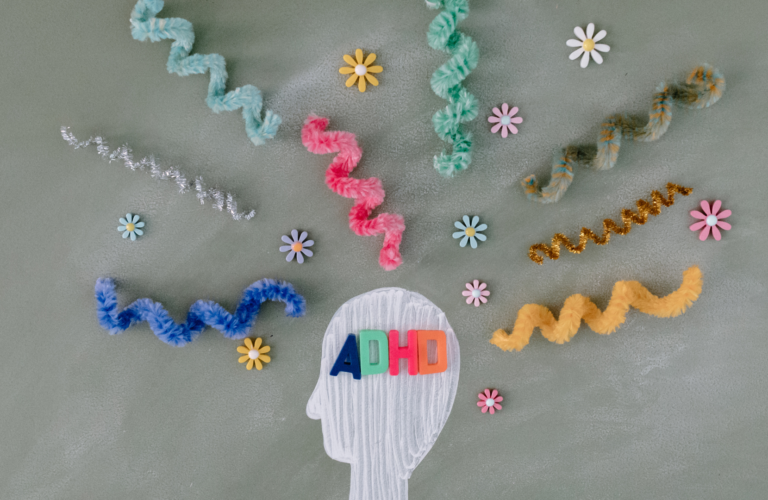As interest in alternative therapies grows, many are exploring the potential of CBD for various conditions, including ADHD. Research indicates that cannabidiol, a compound derived from cannabis and hemp, may offer benefits for individuals with attention deficit hyperactivity disorder. This has sparked curiosity about how CBD interacts with the brain and whether it can alleviate some symptoms associated with ADHD.
Current studies suggest that CBD could help manage hyperactivity and improve focus, which are common challenges for those with ADHD. While the results are promising, the landscape is still evolving, and more comprehensive research is necessary to fully understand its effects. Individuals seeking relief may find CBD a viable option, but it is essential to approach it with informed caution.
Despite the excitement surrounding CBD, it is crucial to recognize that it does not serve as a one-size-fits-all solution. Those considering its use should consult healthcare professionals to ensure safe and appropriate consumption. This careful approach can guide individuals in making the best decisions for their health and well-being.
Understanding ADHD and CBD
Attention Deficit Hyperactivity Disorder (ADHD) affects many individuals, influencing their ability to focus and manage impulses. Cannabidiol (CBD), a compound derived from cannabis, has gained attention for its potential therapeutic benefits. Exploring ADHD and CBD involves examining the characteristics of ADHD, the nature of CBD, and how they interact through the endocannabinoid system.
The Basics of ADHD
ADHD is a neurodevelopmental disorder commonly diagnosed in childhood, characterized by persistent patterns of inattention, hyperactivity, and impulsivity. It affects daily functioning and development. Symptoms typically manifest in several aspects of life, including school performance and social interactions.
Individuals with ADHD may struggle with organization, completing tasks, and maintaining focus. These challenges can persist into adulthood, resulting in chronic issues in both personal and professional contexts. Treatment often involves behavioral therapy and medications such as stimulants or non-stimulants. Understanding ADHD is crucial for determining potential alternative therapies, including CBD.
What Is CBD?
CBD, or cannabidiol, is one of over 100 cannabinoids found in the cannabis plant. Unlike tetrahydrocannabinol (THC), CBD is non-psychoactive, meaning it does not induce a “high”. This makes it an attractive option for those seeking therapeutic benefits without the mind-altering effects associated with cannabis.
CBD is believed to interact with the body’s endocannabinoid system (ECS), which plays a key role in regulating various physiological processes, including mood, sleep, and appetite. It is commonly available in various forms, such as oils, capsules, and edibles. Research into CBD’s effects is ongoing, and while some studies suggest potential benefits for anxiety and mood disorders, more research is needed to establish its efficacy for ADHD.
The Endocannabinoid System and ADHD
The endocannabinoid system (ECS) is a complex cell-signaling system that helps maintain homeostasis in the body. It consists of endocannabinoids, receptors, and enzymes. The ECS is involved in regulating functions such as memory, learning, and emotional responses. Research indicates that the ECS may have a role in ADHD. Dysregulation within this system could contribute to symptoms associated with the disorder, such as impulsivity and difficulties in attention. CBD’s interaction with the ECS may modulate these symptoms, offering a potentially complementary approach to traditional ADHD treatments.
While preliminary findings are promising, the relationship between cannabinoids and ADHD is still being explored. More studies are needed to clarify CBD’s role in managing ADHD symptoms effectively.
Scientific Research on CBD and ADHD Treatment
Recent studies have increasingly focused on the potential role of CBD in managing ADHD. This section reviews current research findings, examines the possible benefits of CBD for ADHD symptoms, and addresses the limitations of existing studies.
Current Research
Research into CBD and ADHD is still in its early stages, but some preliminary studies have shown promising results. They suggest that CBD might help alleviate certain symptoms such as hyperactivity and impulsivity. A 2021 study indicated that CBD could improve focus and attention in individuals with ADHD, although the sample size was small. Other studies have noted that CBD’s calming effects may help individuals manage anxiety, which is often concurrent with ADHD.
However, many of these studies lack rigorous clinical trials and standardized methodologies, making it challenging to generalize the findings. More comprehensive research is needed to establish definitive conclusions.
CBD’s Potential Benefits for ADHD Symptoms
CBD may offer several potential benefits for those struggling with ADHD symptoms.
- Focus Improvement: Some users report an enhanced ability to concentrate while using CBD, potentially due to its effects on serotonin and dopamine receptors.
- Reduction in Hyperactivity: Anecdotal evidence suggests that CBD may help reduce hyperactive behavior, making it easier for individuals to remain calm in stimulating environments.
- Impulsivity Control: By influencing neurotransmitter activity, CBD might aid individuals in managing impulsive behaviors, allowing for more thoughtful decision-making.
While the anecdotal reports are encouraging, clinical evidence supporting these claims is still limited. It is essential to approach CBD use with caution and consult a healthcare professional.
Limitations and Challenges in Existing Studies
There are several limitations in current research into CBD and ADHD. One significant challenge is the lack of large-scale clinical trials. Most available studies have small sample sizes. Another issue is the variability in CBD formulations. Different strains and concentrations can affect results, complicating comparisons between studies. Additionally, there is often a reliance on self-reported data, which can introduce biases. Due to these factors, further research with robust designs is necessary to draw more reliable conclusions about CBD’s efficacy in treating ADHD symptoms.
Legal and Safety Considerations
Understanding the legal and safety aspects of CBD use is crucial for consumers, especially those considering it for ADHD management. This section explores the legality of CBD and the Food and Drug Administration’s position on its safety.
CBD Legality
The legality of CBD varies significantly across different jurisdictions. In many regions, hemp-derived CBD is legal, provided it contains less than 0.3% THC. This federal standard allows for the sale and consumption of hemp-derived products, including oils and capsules.
Despite federal legalization, state laws can differ. Some states impose stricter regulations, while others may have fully embraced CBD usage. Individuals must check local laws to ensure compliance. Ignorance of the law may lead to legal issues or confiscation of products. To assist consumers, many resources are available that outline state-specific regulations. Engaging with these sources can clarify the legal landscape surrounding CBD.
FDA Stance
The Food and Drug Administration (FDA) has taken a measured approach toward CBD regulation. Currently, the FDA has approved only one CBD product, Epidiolex, for specific medical conditions. This limited approval raises questions about the safety and efficacy of other CBD products available on the market.
The FDA maintains that CBD manufacturers must submit evidence supporting claims of safety and effectiveness. Additionally, the agency has issued warnings regarding products that make unfounded health claims. Consumers should exercise caution and look for FDA-compliant products to ensure quality and safety. Regular updates from the FDA regarding CBD are essential for informed consumption. Following these updates helps consumers make safer choices in a rapidly evolving market.
Using CBD for ADHD: Methods and Approaches
When considering CBD for ADHD, various methods and approaches play a significant role in efficacy and usability. Factors such as dosage, product type, and the selection of high-quality CBD are crucial to achieving desired outcomes.
Dosage and Administration
Determining the appropriate dosage for CBD in managing ADHD symptoms is essential. Individuals often start with a low dose and gradually increase it until they find what works best for them. Common starting doses can range from 5 mg to 15 mg of CBD, depending on individual tolerance and body weight.
Factors influencing dosage include:
- Body weight: Heavier individuals may require higher doses.
- The severity of symptoms: More pronounced symptoms might need increased dosages.
- Experience with CBD: New users should start conservatively.
Methods of administration can vary. Options include oils and tinctures, which allow for precise control of dosages, and edibles like gummies and capsules that provide an easy and familiar intake method.
Types of CBD Products
Several types of CBD products are available, each offering unique advantages. Full-spectrum CBD contains various cannabinoids and may provide an “entourage effect,” potentially enhancing the benefits.
Popular product types include:
- Oils and tinctures: Often used for their fast absorption and adjustable dosages.
- Gummies and capsules: These are convenient and discreet, ideal for on-the-go consumption.
- Topicals: Creams may be used to target specific areas, although they might not directly affect brain function.
Choosing the right type depends on personal preference, lifestyle, and specific symptoms. Researching product formulations and concentrations is key to making an informed choice.
Choosing Quality CBD
Selecting high-quality CBD is vital for safety and effectiveness. Consumers should look for products tested by independent laboratories to ensure purity and potency.
Key considerations include:
- Source of hemp: Products made from organically grown hemp are often of higher quality.
- THC content: Opt for products with less than 0.2% THC to remain compliant with regulations in many regions.
- Certification and lab results: These provide transparency and confirm the product’s cannabinoid profile.
Purchasing from reputable dispensaries can also ensure the availability of quality products. Reading reviews and seeking recommendations can further guide individuals in selecting effective CBD options for ADHD.




